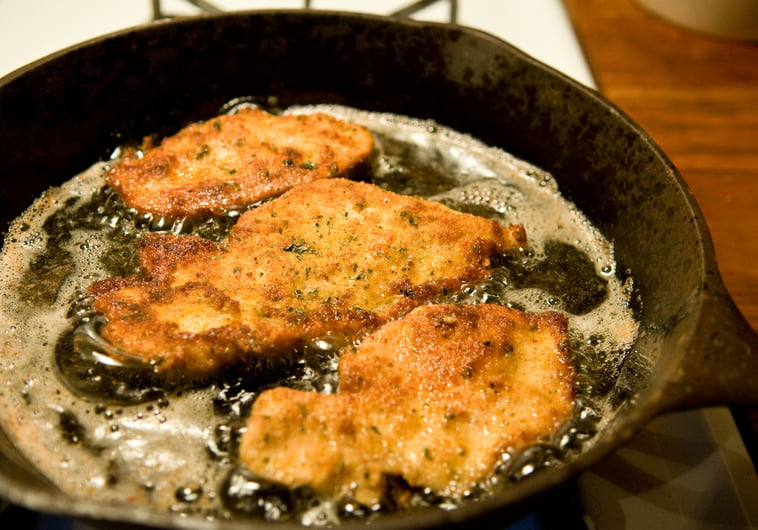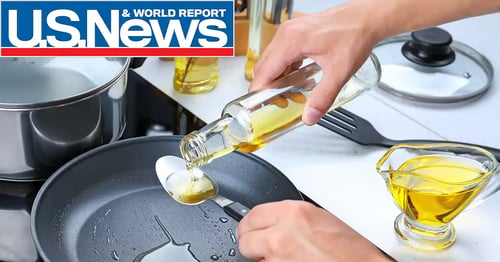Some people have been warned not to cook with olive oil because it supposedly has a low smoke point. Not only is this untrue (olive oil has a moderately high smoke point that exceeds that of coconut oil), but smoke point is not a good indicator of a cooking oil's stability.

When heated, cooking oils undergo chemical changes that destabilize the oil. Depending on the amount of heat applied, and the length of time the oil is exposed to heat, the oil's flavor will change, the oil will oxidize and potentially toxic by-products such as aldehydes and lipid peroxides are produced.
Certain oils hold up to heat better than others due to their oxidative stability. New research has shown that extra virgin olive oil is the liquid cooking fat that has the highest oxidative stability and most resistant to breaking down under heat.
Interestingly, the smoke point of an oil does not correlate with oxidative stability. Smoke point has absolutely nothing to do with how an oil performs while cooking. Smoke point refers to the temperature at which an oil produces a thin, continuous stream of bluish smoke. Here are three reasons why you should focus on oxidative stability instead of smoke point:
- Smoke point is measured in an apparatus that does not resemble kitchen environments. A very small amount of oil is put into an instrument and heated until a thin, continuous stream of bluish smoke is observed. In a kitchen, the oil is heated in larger amounts in an open pan which allows the oil to be heated past the smoke point without smoke.
- Smoke point is not a consistent value throughout the cooking process. As the oil is heated, the smoke point will lower, especially in oils with a high amount of polyunsaturated fats such as corn, canola oil and sunflower oil or oils that have been refined.
- The smoke point of an oil will vary depending on the sample of oil. Depending on factors such as the level of refinement, free acidity, age of the oil etc.. the smoke point of a type of oil may be lower or higher than what is published in guides that you find online. Reputable guides will list the smoke point as a range, not a single temperature.
So instead of looking for oils with a high smoke point, focus on oils with high oxidative stability. These include unrefined oils that are low in polyunsaturated fats such as extra virgin olive oil.
Further Reading:
- Smoke Point Is Not a Reliable Indicator of Cooking Oil Stability
- Why Olive Oil is the Best Oil for Frying
- The Culinary Institute of America Clarifies Guidance on Cooking With Olive Oil
- Olive Oil Retains Health Benefits During Cooking
- USDA Recommends Olive Oil for Deep Frying
- US News reports on olive oil smoke points






 The North American Olive Oil Association is committed to supplying North American consumers with quality products in a fair and competitive environment; to fostering a clear understanding of the different grades of olive oil; and to expounding the benefits of olive oil in nutrition, health, and the culinary arts. | © North American Olive Oil Association. All Rights Reserved.
The North American Olive Oil Association is committed to supplying North American consumers with quality products in a fair and competitive environment; to fostering a clear understanding of the different grades of olive oil; and to expounding the benefits of olive oil in nutrition, health, and the culinary arts. | © North American Olive Oil Association. All Rights Reserved.